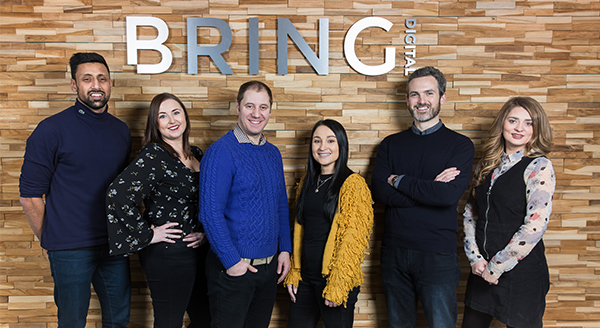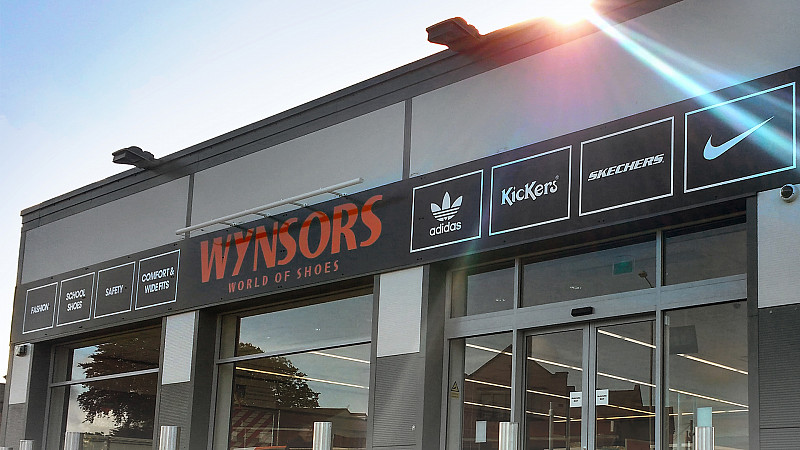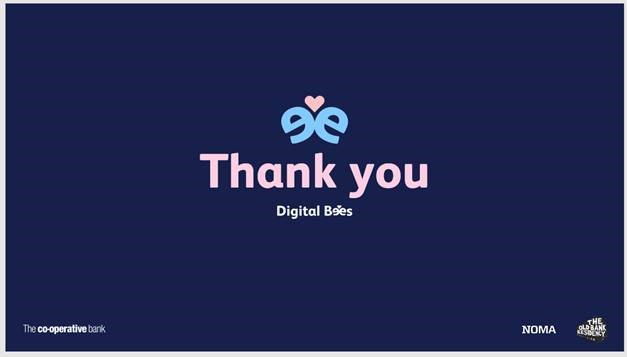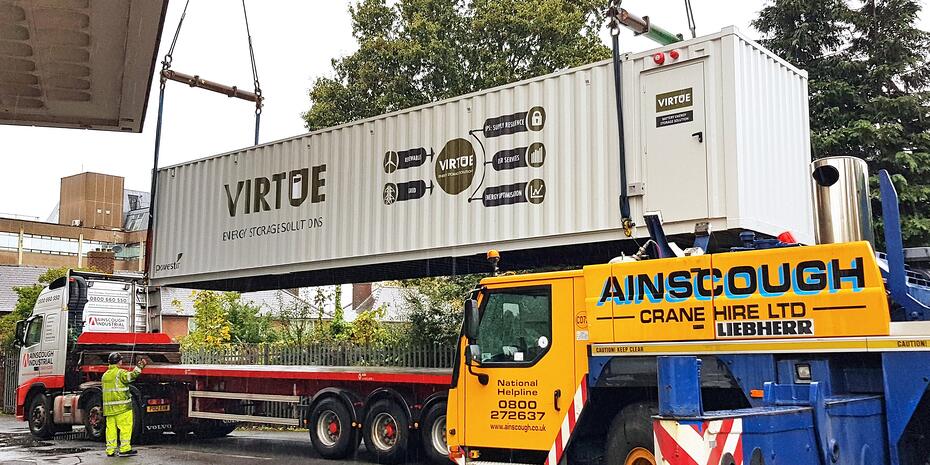
With 2022 set to be another exciting year when it comes to new tech trends, we're concluding our 2022 Digital and Tech Trends series that has looked at work & culture and skills demands by asking a selection of businesses from Greater Manchester's digital and tech community to provide their insights as to which trends they expect to see in their industry next year.
Indiespring
Arran Kirkup, Head of Client Engagement
AI and machine learning have been top of the list of tech trends for several years now, and as we head into 2022, we’re likely to see an even greater impact. From user predictions, hyper-personalisation and AI-based cameras all moving mainstream, AI algorithms will explore new areas of innovation that don’t simply rely on keeping us connected, they will enhance our lives from the pictures we take, to health, accessibility and travel.
Meta’s (previously Facebook) big plans to build a metaverse by 2030 may seem too far in the future to be considered over the next 12 months, but in reality the technology of living in a ‘digital world’ is already part of our everyday lives. As hybrid or remote working is set to continue, the functions and activities we will be able to carry out will increase and tech companies, with the help of AR and VR, will no doubt be delving into new ways to simulate the real world within our screens.
At Indiespring, we understand the next few years of digital transformation are going to be crucial as businesses continue to update legacy systems and embrace the digital shift that was accelerated by the pandemic. How will 2022 digital transformation be different? We will no doubt see a shift of focus onto mobile, now that tablets and smartphones have the processing power and speed to complete operations necessary for our work and personal lives. Following this trend, there is also the potential that operating systems across devices will begin to amalgamate, as more and more developers start to build solutions that are truly mobile-first.
Check Directory
Beeta Tech
Oli Legge, Junior Software Developer & Daniel Yacoubian, Full-Stack Software Developer
Oli:
I'm looking forward to .NET MAUI as I feel this will make it easier to deploy apps for Beeta’s clients, alongside our current expertise with the Microsoft tech stack. I'm also looking forward to the future Hot Reload support that MS is going to offer in VS 2022, being 64-bit this will enable much faster development on larger scale projects (FIF 3x faster).
Daniel:
Global using directives with .NET 6.0 will help with new file iterations and the initialization of const interpolated string will be nice for class validation attributes. I’m also looking forward to the Blazor IntelliSense improvements and Hot Reload functionality.
Unrelated to Beeta but Unreal Engine 5 will also be ready in early 2022 which will be exciting to play around with.
The Profitable Firm
Karen Reyburn, Founder
The trend I feel most excited about in 2022 isn’t a technological one: it’s a human one.
After the two years we’ve had, with all its ups and downs and changes, it is the human relationships I’ve come to appreciate the most. Deeper conversations with clients, a greater appreciation of the humans who work in my agency, and the consistency of “people doing business with people”.
I’m excited about any tech which will support and strengthen those relationships, and will seek to show as much humanity as we can in our creative agency.
Datacentreplus
One trend we are looking forward to is a concept called the ‘metaverse’.
The metaverse combines virtual and augmented reality to allow users to operate inside a digital landscape physically.
New remote working solutions may become available such as virtual; meetings, office tours and even interviews.
This could result in an increased demand for server space and decreased network speeds to accommodate the power needed to run the metaverse. This presents a challenge to data centres such as ourselves, keeping us thinking outside the box for solutions to expand our cloud-based services.
Another trend we are excited to see happen in 2022 is high performance computing, which is the ability to process high amounts of data and perform complex calculations at high speeds.
To put this into perspective, a laptop or desktop with a 3 GHz processor can perform around 3 billion calculations per second. Whilst that is much faster than any human could attain, it is nothing in comparison to the HPC solutions that can perform quadrillions of calculations per second.
High-speed computers will need high-speed servers to keep up with all the data needed to process calculations, which will mean more ideas coming from our side here at Datacentreplus!
Check Directory
Kin + Carta
Zoe Bishop, Director of Marketing
The tech trend that excites us most is the growing realisation that digital transformation needs to be sustainable.
Not many people are aware that the digital sector produces as much CO2 every year as aviation – 3.7% of total global emissions. The digital solutions that could provide answers to the big challenges facing our world may also be causing the problems in the first place. Going digital is not the same as going green. What we’re looking forward to witnessing is a sea change in the way we write code, the platforms we build on and the energy we consume in creating our digital future.
For many businesses, sustainability requires an update of their tech stack which has developed over the years and become overly complex and inefficient. E-waste isn’t just generated through hardware but the energy used to backup data. These updates will be good for both profit and planet.
Answers are there such as prioritising efficient technologies like cloud-native data platforms. Digital also has a massive role to play in achieving Net Zero. In agriculture, enhanced digital insights can improve production. Data can help shops and restaurants to manage food waste and it’s estimated that AI intervention in this area could save up to $127 billion a year by 2030.
A systems-mindset can help us avoid developing shortsighted products and experiences.
At Kin + Carta, we’re big believers in the power of digital tools. But in the end we need to ensure that true sustainability lives at the core of our solutions and not just in the outcomes they aim to create. We need to see companies step up and embrace sustainable digital transformation and take the lead in looking after our planet. More than ever, now is the time for urgent iteration, testing, and application.
Credera
Andrew James, Director
Public clouds have traditionally been viewed as walled gardens, particularly when it comes to the lower-level infrastructure, network and cloud-native services which tend to reflect the idiosyncrasies of individual providers. This perspective has driven many enterprises to meet their portability requirements by mandating the use of only a small subset of cloud services or building and managing their own, resulting in significant additional costs and complexity.
Whilst this view remains prevalent today, the winds of change have been blowing for some time. We believe that public cloud providers are on a journey of convergent evolution towards open standards and protocols that will make it much easier to use managed services in the future, whilst avoiding platform lock-in.
Early indications of this were visible in the choice of cloud providers to provide fully managed services for portable OSS software such as PostgreSQL and Kafka, a trend which has accelerated over time. We then saw a rapid convergence of containerisation technologies, with Docker containers standardising as part of OCI and Kubernetes arriving as the ubiquitous orchestration platform.
The third, and most interesting, trend has been the adoption of open source interfaces and protocols for cloud-native services (such as Kafka on Azure Event Hubs, HBase on BigQuery and most recently, PostgreSQL on GCP Cloud Spanner), coupled with the release of several key products as open source, such as FireCracker and Apache Beam.
Finally, we continue to see further maturity in the wider ecosystem of third party products that provide standard APIs across providers, such as HashiCorp Vault.








